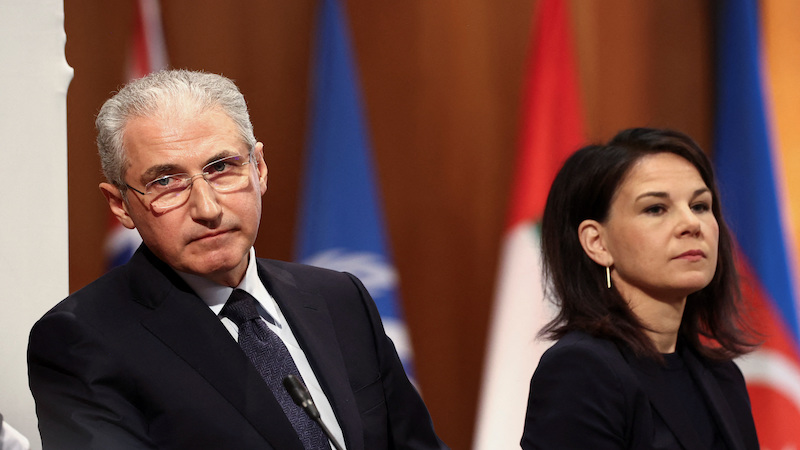Germany wants all high-emitters, especially among G20 countries, to pitch in. But China and Saudi Arabia say the responsibility lies with developed nations
As negotiations over a new global climate finance goal move into a higher gear, divisions are sharpening over who should be required to cough up the money needed to help vulnerable countries shift to clean energy and build resilience to climate change.
For German Foreign Minister Annalena Baerbock, all “those who can” – and “in particular the strongest polluters of today” – should step up, in addition to industrialised nations that already provide funding. “Strong economies share strong responsibilities,” she said in a nod to G20 countries on Thursday at the Petersberg Climate Dialogue in Berlin, an annual gathering for the world’s top climate diplomats.
Baerbock’s views are widely shared by other rich countries, but they face stiff opposition from the upper-middle income nations – such as China and Saudi Arabia – referenced in her remarks.
Those governments argue that the 2015 Paris Agreement puts the responsibility of fulfilling climate finance obligations squarely on the shoulders of developed countries – and want to keep it that way.
Negotiators from China and Saudi Arabia spelled that out once again this week in Cartagena, Colombia, during this year’s first round of technical discussions that should pave the way to an agreement on the new collective quantified goal (NCQG) for finance at the COP29 climate summit in Azerbaijan.
“We will not entertain a renegotiation of the contributors and the recipients of NCQG,” said Chao Feng, China’s finance negotiator, on Wednesday. His words were repeated shortly afterward by Saudi Arabia’s Mohammad Ayoub.
More money for more action
The new climate finance goal is the most important decision expected to be taken at this year’s climate summit.
Experts believe an ambitious deal can play a crucial role in getting developing countries, especially the poorest ones, to commit to stronger action on emissions and adaptation as they draft their new national climate plans due in early 2025.
Without clear signals on the amount and quality of money on the table, the fear is that governments will fail to raise the bar on climate ambition and put an international goal of limiting global warming to 1.5C beyond reach.
After more than two years of discussions and with time running low, negotiators remain at odds over the most fundamental elements of the goal: how large the overall sum should be, what it needs to pay for, over how many years, and the best way to monitor the money.
At a four-day session in Cartagena ending this Friday, negotiators are attempting to iron out some of those knots and sketch the first outline of a deal.
Azerbaijan’s vision
In laying out his vision for November’s UN summit in Baku, the COP29 incoming president, Mukhtar Babayev, acknowledged in Berlin that finance is “one of the most challenging topics of climate diplomacy”, adding that there are “strong and well-founded views on all sides”.
“We are listening to all parties to understand their concerns and help them refine potential landing zones based on a shared vision of success so that we can deliver a fair and ambitious new goal,” he added.
For Marc Weissgerber, executive director of E3G’s Berlin office, Babayev’s speech outlined “important elements of a multifaceted solution to the finance challenges, but what is needed are clearly defined diplomatic pathways”.
“It needs to be seen how Azerbaijan can contribute – as a bridge-builder – to this essential challenge,” he added.
Moving past $100bn
Talks have also been strained by eroding trust following rich nations’ failure to honour a pledge made nearly 15 years ago to mobilise $100 billion a year in climate finance for developing countries by 2020. They now “look likely” to have belatedly met the goal in 2022, according to an assessment by the Organisation for Economic Co-operation and Development (OECD) based on preliminary data that is
Read More







Never miss a story. Join us on social.